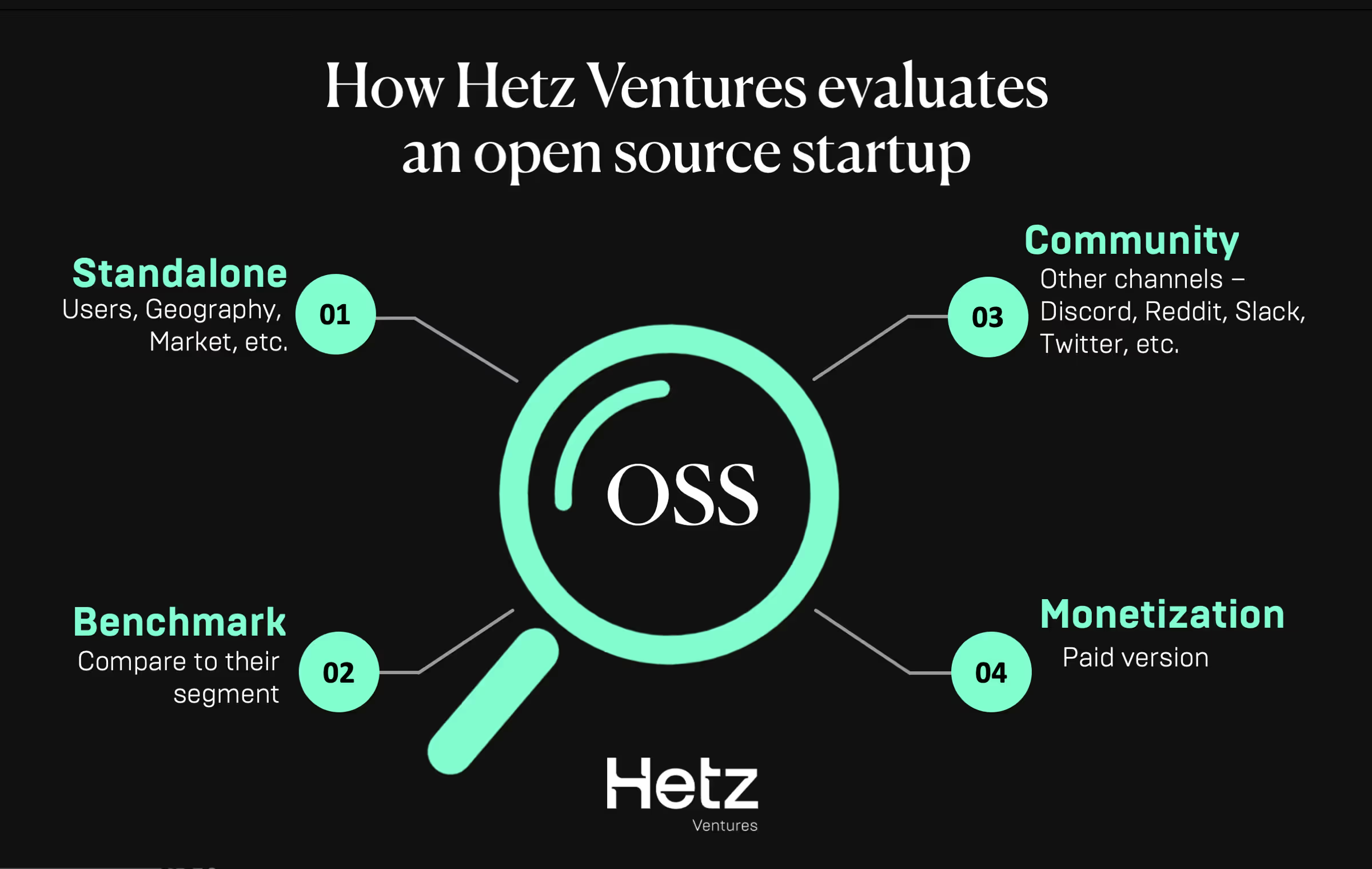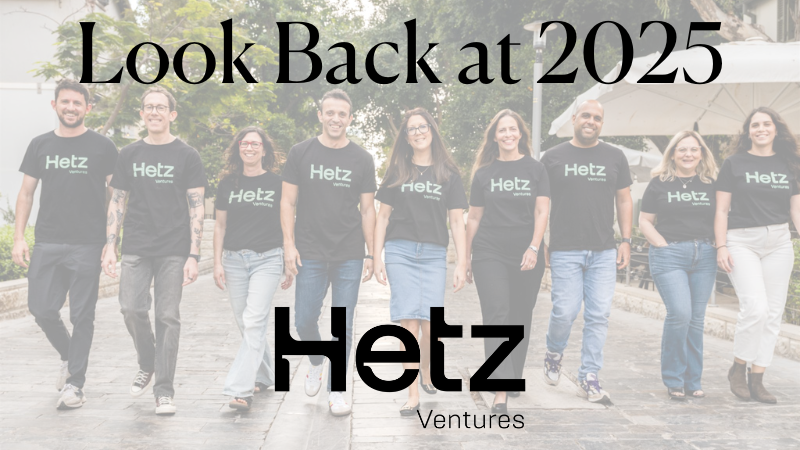Why would a VC launch an open source developer tool?

by Or Yahud, Principal at Hetz Ventures

Three years ago, when we met with founders building an open source product (and what became one of our first OSS investments), we asked ourselves: how can we realistically evaluate this? The metrics for an OSS company are different because the first KPIs tend to come from the community, and also depend on specifically how the company is built.
Generally speaking, there are two types of companies building on open source. One is the company that builds its own open source; these will initially focus on community engagement, and one of their biggest initial challenges when building that way is which aspects stay open source and usable to the public and what will be monetized (for example, AirByte). This is the type of company we focus on. The second type of company is one that builds its product on top of existing open source; for example, Redis Labs.
I ended up working on a simple script to analyze public GitHub repositories’ user data to do better due diligence. We knew that if we could better understand the true usage numbers - not just number of Stars, which is the simplest tracker for OSS popularity - we could better understand the competitive landscape and true nature of the product and community we were looking to invest in.
Since then, we have steadily been asked about OSS repos from other VCs and angels, and have shared insights from the tool and our learnings regarding OSS evaluation with many founders, both inside and outside our portfolio.
How we evaluate OSS companies at Hetz
Eventually, we came up with a process to evaluate OSS startups, based on four categories:

1. Standalone
These are the engagement metrics specific to open source repos - like awareness (Stars), usage (Forks, Docker pulls), contribution (issues, reviews), and maintenance (commits, pull requests). We also look at real or active users vs total users, geography, the types of organizations they work for, trends in repo growth, and more.
2. Benchmark
Since we understand that not all open-source repos are equal (i.e DBs are different than DevTools), we compare "apples to apples" so we'll understand if the repo is above or below the benchmark. On top of the engagement data, we try to add any business data points we have - revenue, money raised, etc., to understand the correlation between the community and the business, and what the KPIs should be.
3. Community
After understanding the repository's community which most of the time is GitHub, we also try to understand "external" communities such as Discord, Reddit, Slack, Twitter is another layer we examine.
4. Monetization
This is where the magic happens: After analyzing all the collected data, as investors we need to ask ourselves the classic questions - Is this a must-have? Who are the SaaS competitors in their market? etc. Examining the business model and monetization factors matters for OSS companies, even if their pathways may be different than traditional SaaS models, depending on the motion and value offered. In this step, we look at the various business models - support (e.g. Red Hat), managed (e.g. Redis Labs), open-core (e.g. GitLab), dual-licensing (e.g. MySQL), and customizations.
Why we built a public OSS tool for evaluating OSS
We all know VCs' jobs are to search for and examine disruptive companies, but as a VC, we see ourselves as another member of the disruptive tech community: in the way we've constructed our team with relevant dev, product and startup backgrounds and the way we operate openly and transparently. Especially with early stage tech companies, we view the right way to operate as a VC is to match their builder’s DNA with our own.
In short - after spending the last few years focused on developer productivity and product led growth, and talking to founders developing open source software, we thought it would be cool to start releasing our own tools like OSS startups do, the way open source is done.
That brings us to now, launching our first OSS, repoInspector - packaged as a Chrome extension with a user friendly interface so anyone can access, analyze and leverage GitHub API accessible data on any public repos. With repoInpsector, you can easily pull data including number of profiles, active users, all users, geographical breakdown of users, organizations to which the repo’s users belong, and even deeper user data.
repoInspector covers the first of our four evaluative categories - the standalone metrics, and is the first tool in our OSS roadmap. It’s also how we see ourselves continuing to contribute towards the wider dev community.
We’re really looking forward to your feedback, so please feel free to be in touch and let us know what new features you’d like to see. And, it’s open source - feel free to build on it.
And don’t forget to Star us.

.jpg)
